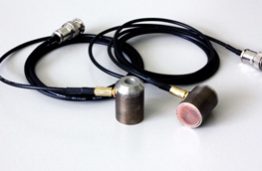Project code: SME-2010-1-232253
ES programme: Framework Programe 7 (FP7)
The objective of the project
To develop an in-situ sensor that enables measurement of the density of ceramic tiles during pressing by using Ultrasonic Pulse Velocity measurement (UPV).
Problem
The occurrence of density gradients in ceramic tiles during pressing is believed to be the main cause of defects during processing. Problems such as differential shrinkage and warpage (bending of tiles) typically arise leading to losses or down-grading of final products. Density gradients are caused by poor die design, bad practice and/or unsuitable particulate materials, with the resultant poor flow ability impacting on die filling uniformity. Currently, these faults go undetected until been fired, rendering them scrap, which is difficult to recycle and often sent to landfill.
Ultrasound institute
Ultrasound institute is in charge of setting up a laboratory scale UPV system designed to measure ceramic density. In addition, Ultrasound institute is defining optimum frequency, lateral size, mechanical bound of ultrasound emitter/receiver and performing preliminary tests on ultrasonic wave time of flight and attenuation level through ceramics. Time scale resolution needed to reach expected density measure accuracy is also being identified.
Project partners
CERAM Research Ltd (UK), F.lli Rossi fu Cesare SpA (Italy), Microlog Srl (Italy), CNS Farnell (UK), Topcer (Portugal), University of Modena and Reggio Emilia (Italy), Ultrasound Institute, Kaunas University of Technology (Lithuania).


